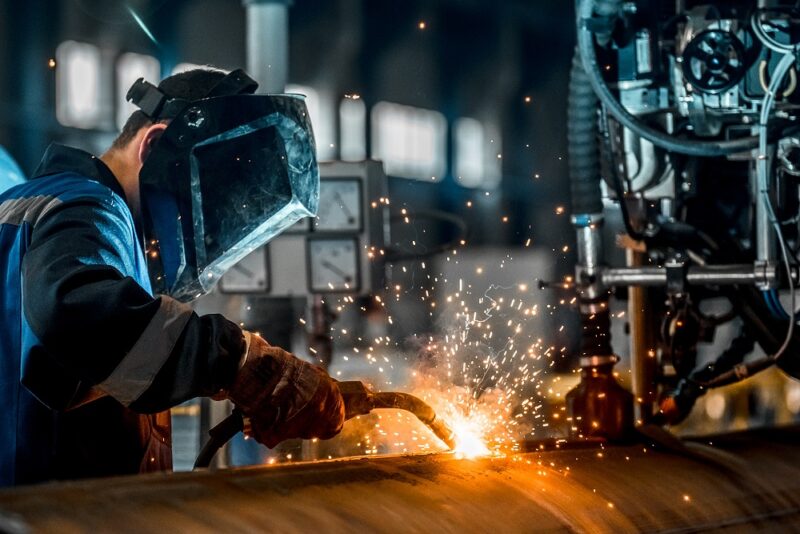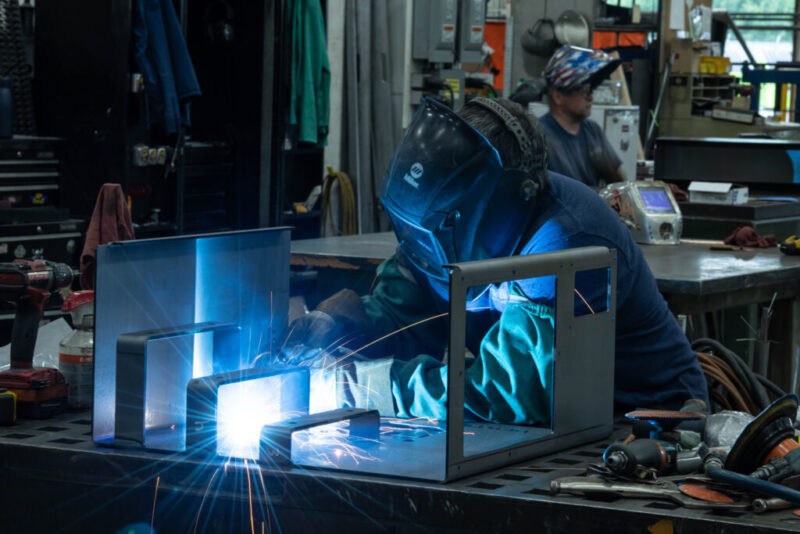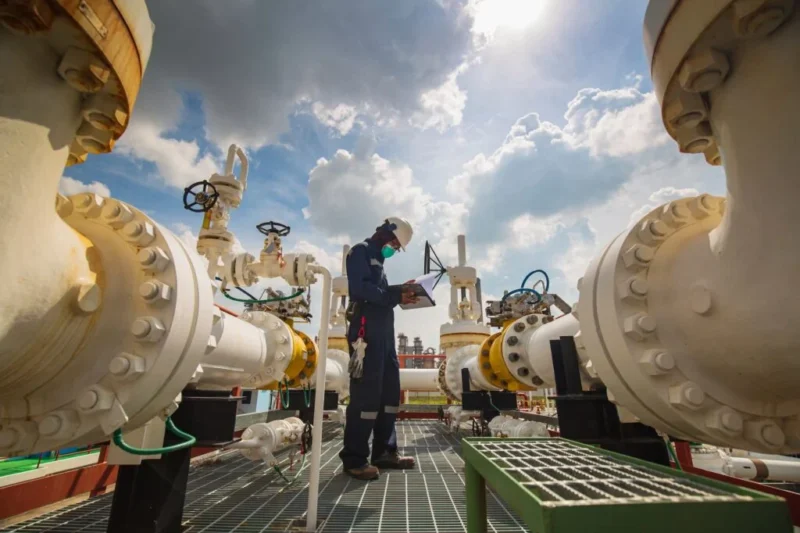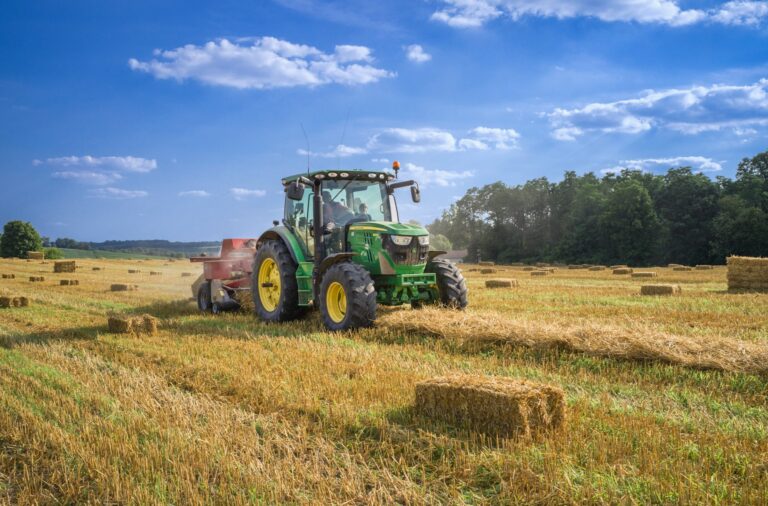In the high-stakes environment of the oil and gas sector, there’s no margin for error. Every piece of infrastructure—whether it’s a pressure vessel, pipeline support, or structural frame—must perform flawlessly under extreme pressure, temperature, and corrosive exposure. Standard components often fall short of these demands.
That’s why custom metal fabrication is essential. It ensures every part is tailored to exact specifications, built with materials engineered for harsh conditions, and tested for long-term reliability. Custom fabrication isn’t a luxury—it’s a fundamental requirement for ensuring safety, efficiency, and compliance across all stages of oil and gas operations, whether at sea or on land.
Why Custom Metal Fabrication Matters in Oil & Gas

The oil and gas industry relies heavily on large-scale, complex metal components — from pressure vessels and storage tanks to pipeline supports and heavy structural frames. Off-the-shelf parts rarely meet the stringent specifications or environmental challenges of this field. Custom fabrication allows companies to:
- Achieve precise specifications: Custom metal fabrication ensures every component meets exact design requirements, tolerances, and material standards necessary for critical oil and gas applications.
- Use specialized materials: Components often require corrosion-resistant alloys, high-strength steel, or heat-resistant metals customized to withstand harsh environments such as extreme temperatures, pressure, and chemical exposure.
- Enhance durability and safety: Customized fabrication enables rigorous quality control and testing, reducing the risk of failure in high-stakes operational conditions.
Expanding the Role of Fabrication in Harsh Environments
Beyond basic structural needs, custom metal fabrication plays a transformative role in helping oil and gas operators adapt to extreme environments. Whether it’s the arctic cold of offshore platforms in the North Sea or the searing heat of Middle Eastern deserts, fabricated components must hold up under significant thermal and mechanical stress.
For example, pipeline infrastructure deployed in permafrost zones must manage thermal contraction and expansion while also resisting brittleness. In such cases, alloy selection, reinforcement structures, and advanced welding methods must be tailored to project-specific needs. Custom fabrication isn’t just about making a part fit—it’s about engineering resilience from the ground up.
Key Custom Metal Fabrication Services for Oil & Gas
- Structural Steel Fabrication: Custom-fabricated steel frameworks support drilling rigs, processing plants, and offshore platforms, designed to endure heavy loads and environmental stress.
- Pressure Vessels and Tanks: Fabrication of vessels capable of safely containing volatile gases and liquids, tailored to meet regulatory compliance.
- Pipe Supports and Hangers: Precision-engineered supports ensure pipelines maintain integrity and alignment through complex routes.
- Machined Components: From flanges to connectors, custom machining ensures compatibility and seamless integration with existing systems.
Field-Specific Examples and Applications
To make the most of fabrication capabilities, oil and gas companies often commission components like:
- Custom manifolds and headers for modular skid systems
- Riser clamps and conductor guides for offshore drilling
- Custom skids for mobile filtration and metering equipment
- Heat exchanger shells built to ASME standards
Each of these plays a role in increasing efficiency, reducing downtime, or boosting safety—key priorities for oilfield engineers and maintenance planners.
Advantages of Partnering with a Trusted Fabricator

Choosing the right custom metal fabrication partner is crucial. Such companies bring decades of experience working with the oil and gas sector, offering:
- Advanced technology: CNC cutting, robotic welding, and precision machining for consistent, high-quality results.
- Experienced workforce: Skilled fabricators understand the nuances and compliance requirements of oil and gas projects.
- Comprehensive project management: From initial design consultation through final delivery, ensuring projects stay on time and budget.
- Safety and compliance: Adherence to industry standards such as ASME, API, and ISO certifications.
The Value of Certification and Traceability
In the oil and gas industry, compliance isn’t just a checkbox—it’s a matter of legal, environmental, and human safety. That’s why custom fabricators often build components to meet:
- ASME Section VIII for pressure vessels
- API 650 and API 620 for storage tanks
- AWS D1.1 for structural welding
Moreover, documentation is key. Traceability of raw materials, weld procedure specifications (WPS), and final inspection records all form part of the project dossier. Working with a certified fabricator ensures that you’re not just buying a part—you’re getting full process transparency and audit-ready deliverables.
Custom Fabrication for Onshore vs. Offshore Projects
The fabrication needs of offshore platforms often differ significantly from those on land. Offshore projects may require:
- Higher levels of corrosion resistance due to saltwater exposure
- Compact or modular components for crane-lift transport
- Additional seismic and wind-load considerations
- Faster production cycles to reduce rig downtime
Onshore fabrication projects, on the other hand, often focus on pipeline networks, gas compressor stations, and refinery systems. Here, the emphasis is on throughput, pressure containment, and thermal cycling durability.
In both cases, customization reduces long-term maintenance costs by eliminating points of failure and ensuring that every component is engineered for the exact job it must perform.
Digital Fabrication and the Future of Oil & Gas Infrastructure

With the rise of digital twins and predictive maintenance, custom fabricators are evolving to integrate with digital oilfield operations. Today, a fabricator might use CAD-to-CAM pipelines, digital prototyping, and even 3D scanning of field environments to ensure that every piece fits the first time. This minimizes costly rework and aligns perfectly with lean construction principles being adopted across the sector.
Additive manufacturing (3D printing of metals) is also beginning to play a role in prototyping and producing small-volume, high-precision components. While it’s not yet replacing traditional welding and machining, it’s opening new doors for rapid turnaround in emergency repairs or low-volume parts.
Conclusion
The oil and gas industry demands components that don’t just meet expectations but exceed them, ensuring safe, reliable, and efficient operations. Custom metal fabrication provides the flexibility and precision necessary to build infrastructure that stands up to these challenges.
By partnering with experienced fabricators who understand the complexities of the industry—from materials science to regulatory compliance—oil and gas companies can future-proof their assets, enhance safety, and maintain operational uptime in the most demanding environments.
Whether you’re managing an offshore platform or running pipelines across thousands of miles of terrain, custom fabrication is the backbone that makes your operation not just possible—but resilient.
Related Posts:
- What Lies Ahead For The Oil And Gas Industry In A…
- How to Choose Between Epoxy, Acrylic, Metal, and PVC…
- Can Custom Rack Widths Offer More Benefits Than…
- Data Storage Methods for Businesses: Innovative Solutions
- Kratom and Similar Herbs: Natural Solutions for…
- 5 Banking Analytics Trends Driving the Financial…







